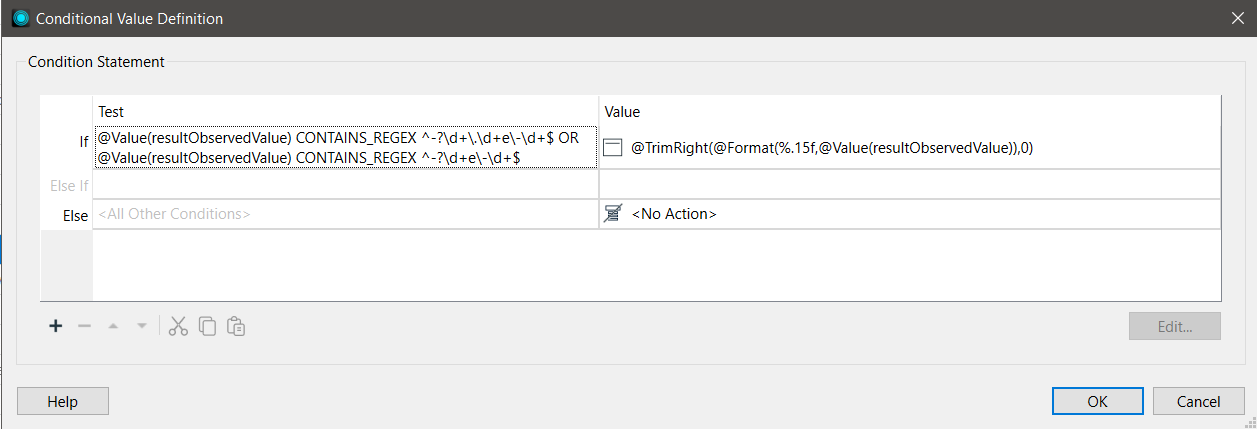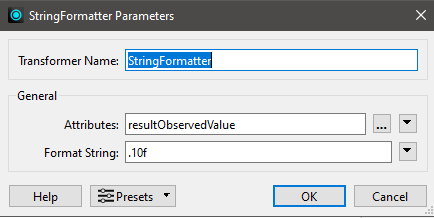I’m using an FME FeatureReader to read a content of an Excel file containing various values, including decimal numbers, some of them small with more then 5 decimal zeroes.
The FME, apparently, handles these small numbers using scientific e notation.
After processing the data, I write it into a CSV file using a FeatureWriter. The problem is, that the small numbers are written in their scientific notation form, and not as real decimal numbers. This is causing an issue further down the line.
I tried various things to force the FME to write the numbers as decimals:
- forcing datatype of the affected attributes in the FeatureWriter to Decimal or Real
- using AttributeManager to change the datatype of the affected attributes to Real, Decimal and even String
- forcing the datatype of the affected attributes in the FeatureWriter to String
- changing the datatype of the affected cells in the Excel file to Text
Nothing helped.
I tried to find a String or Math function that would achieve that, but I’m not sure if there’s any.
I’m considering to use a PythonCaller to write a script that would convert the numbers in scientific notation to real decimal values, but I would like to avoid it if possible. I’m also not sure if FME wouldn’t immediately convert those values to their scientific notation again.
Any idea what should I do?


















